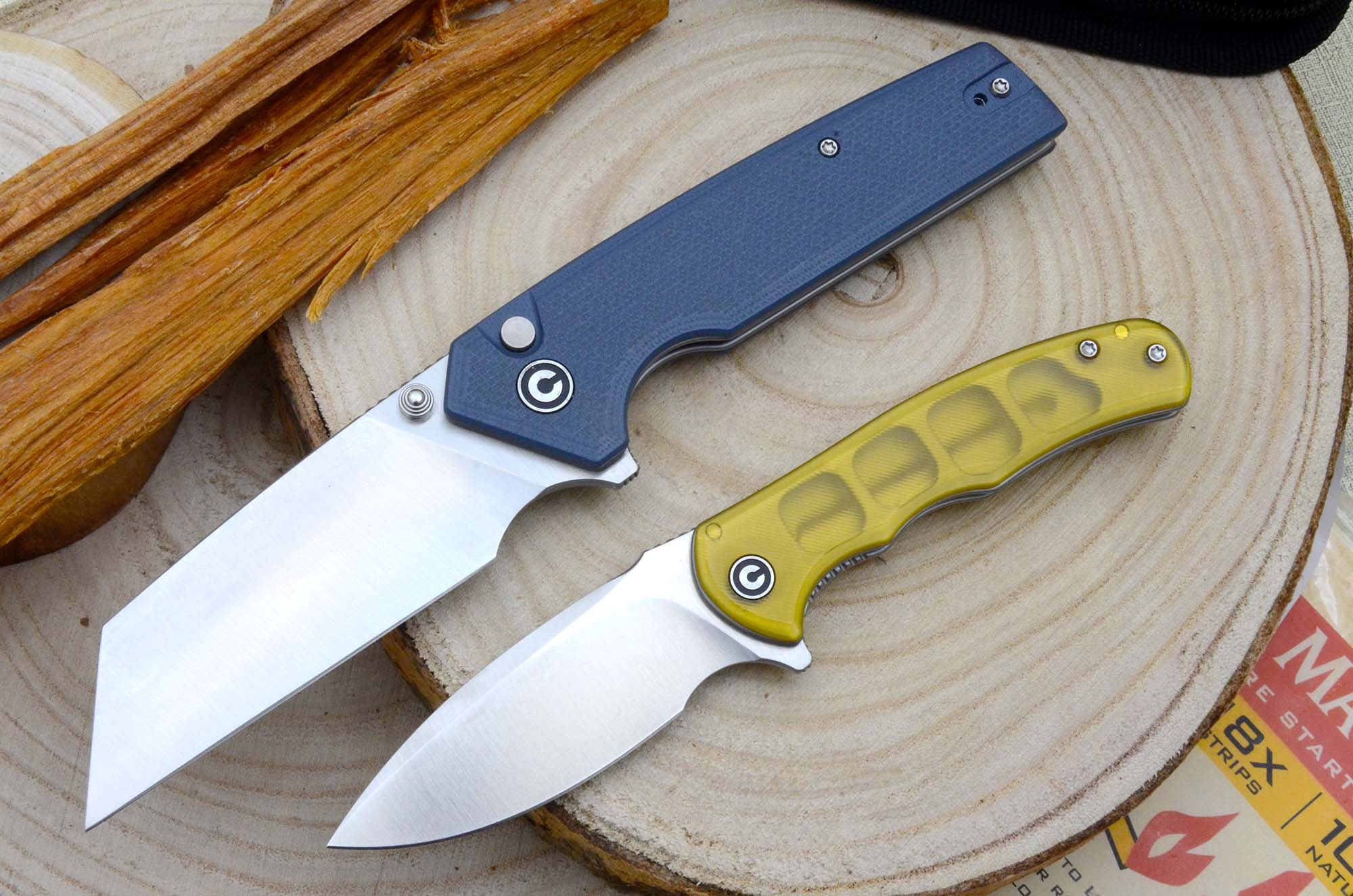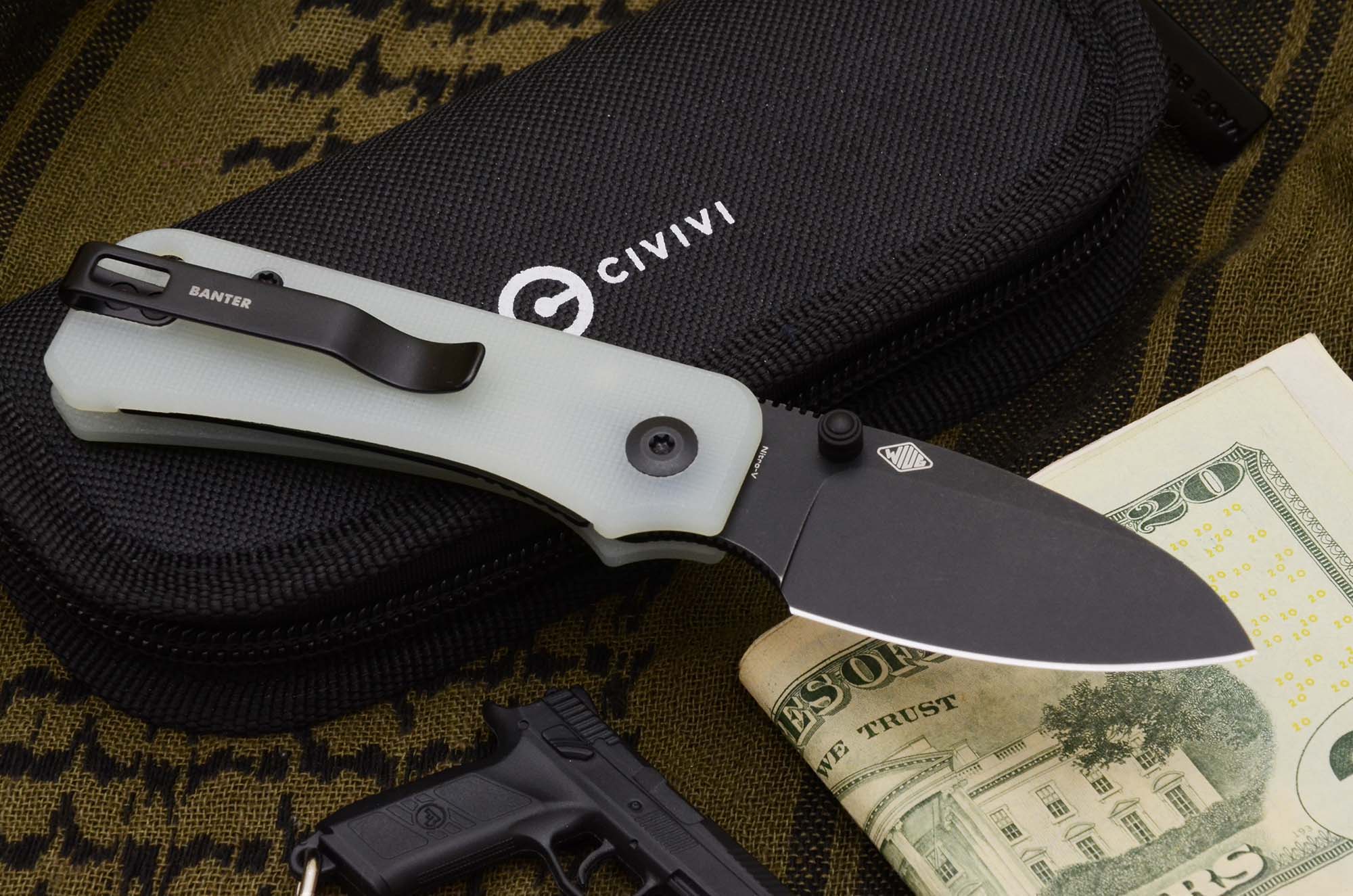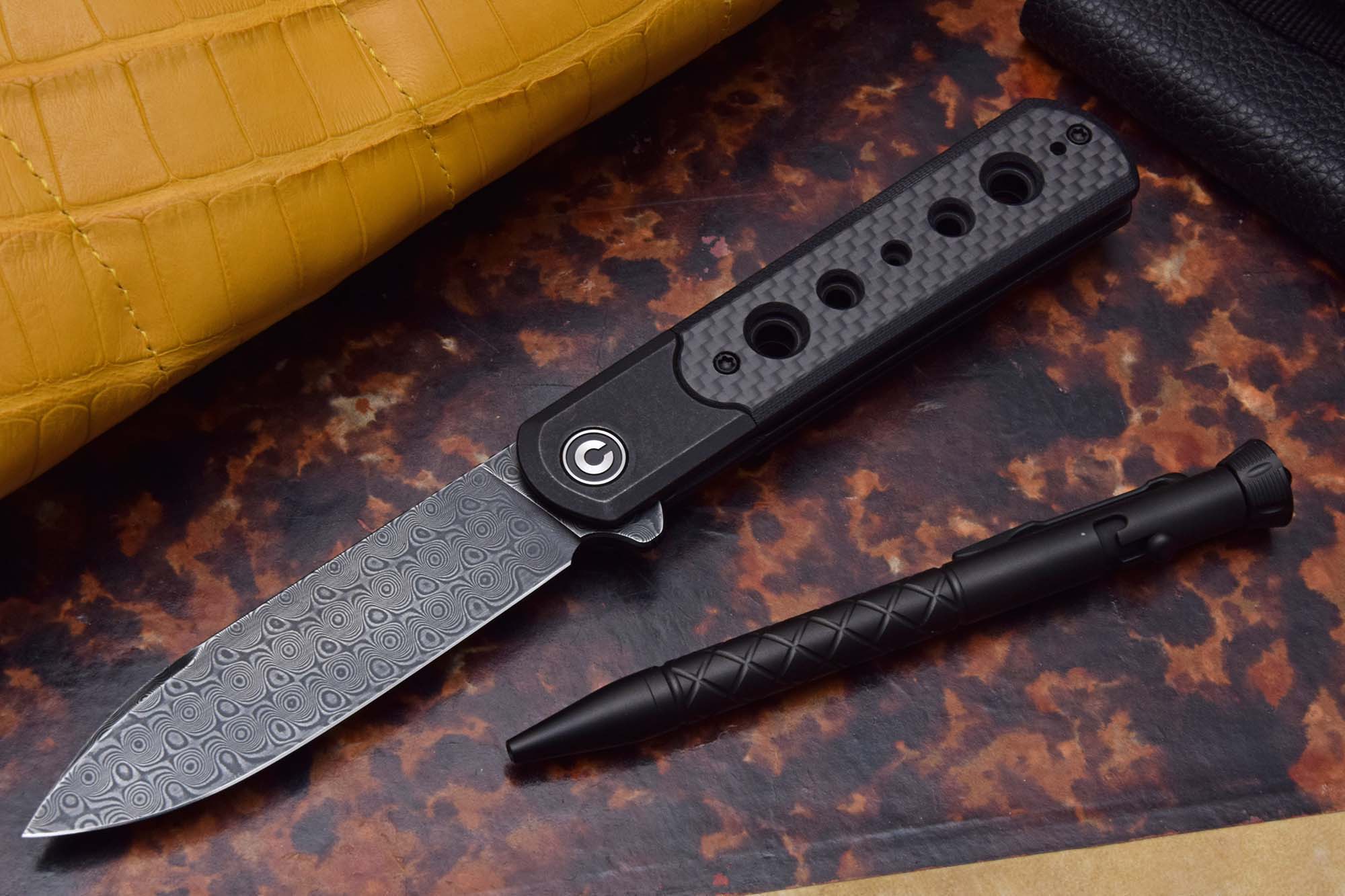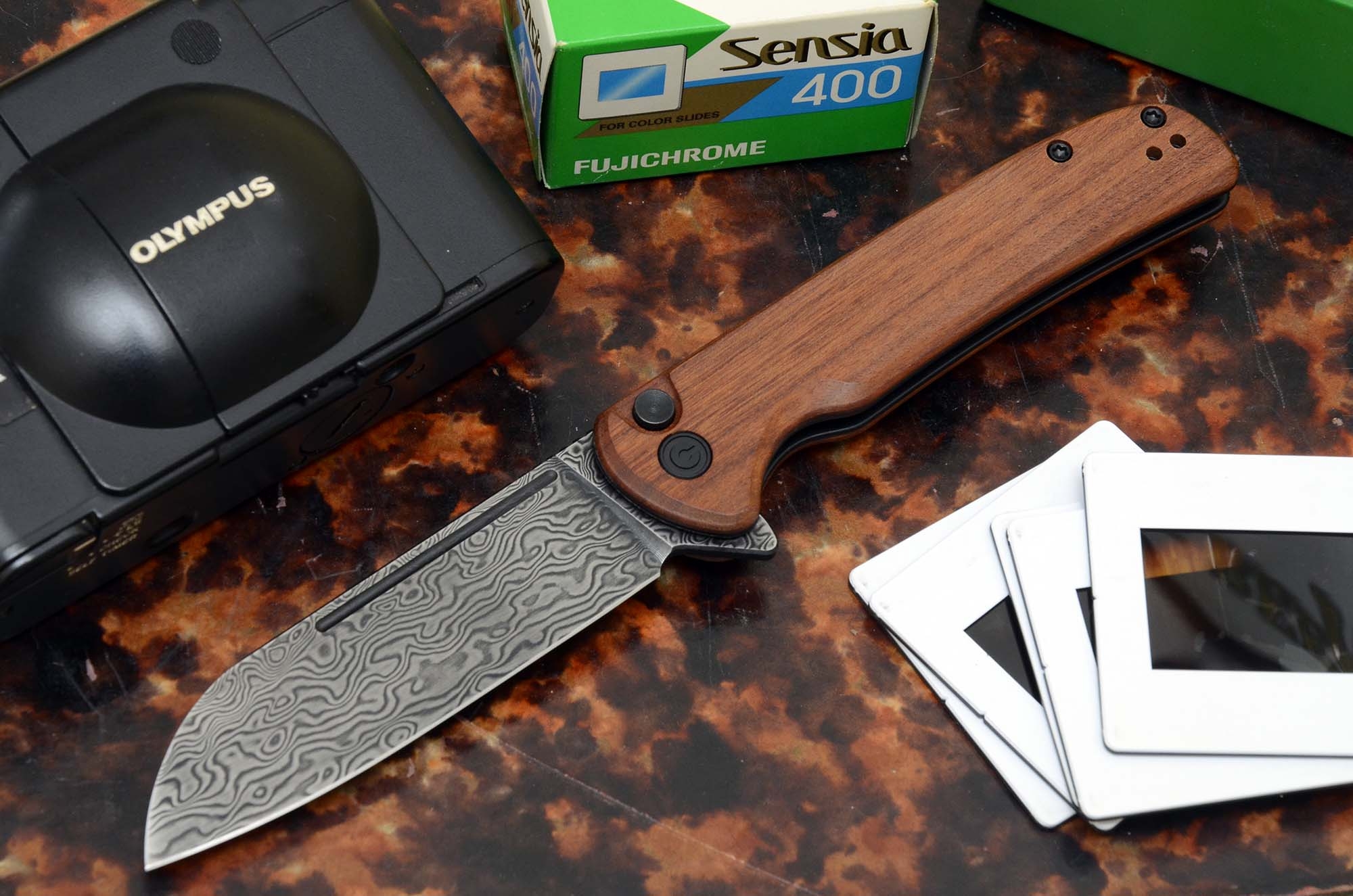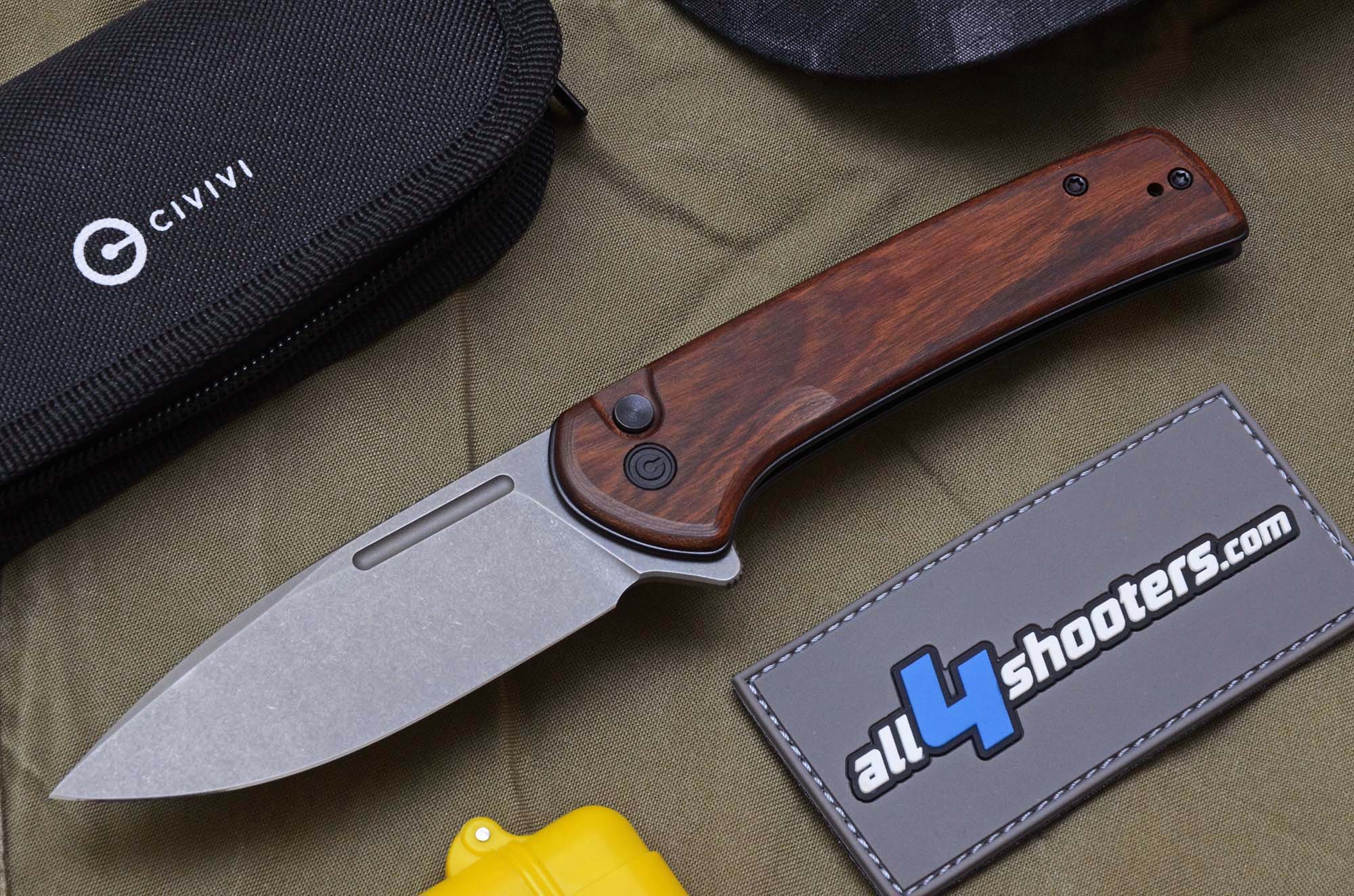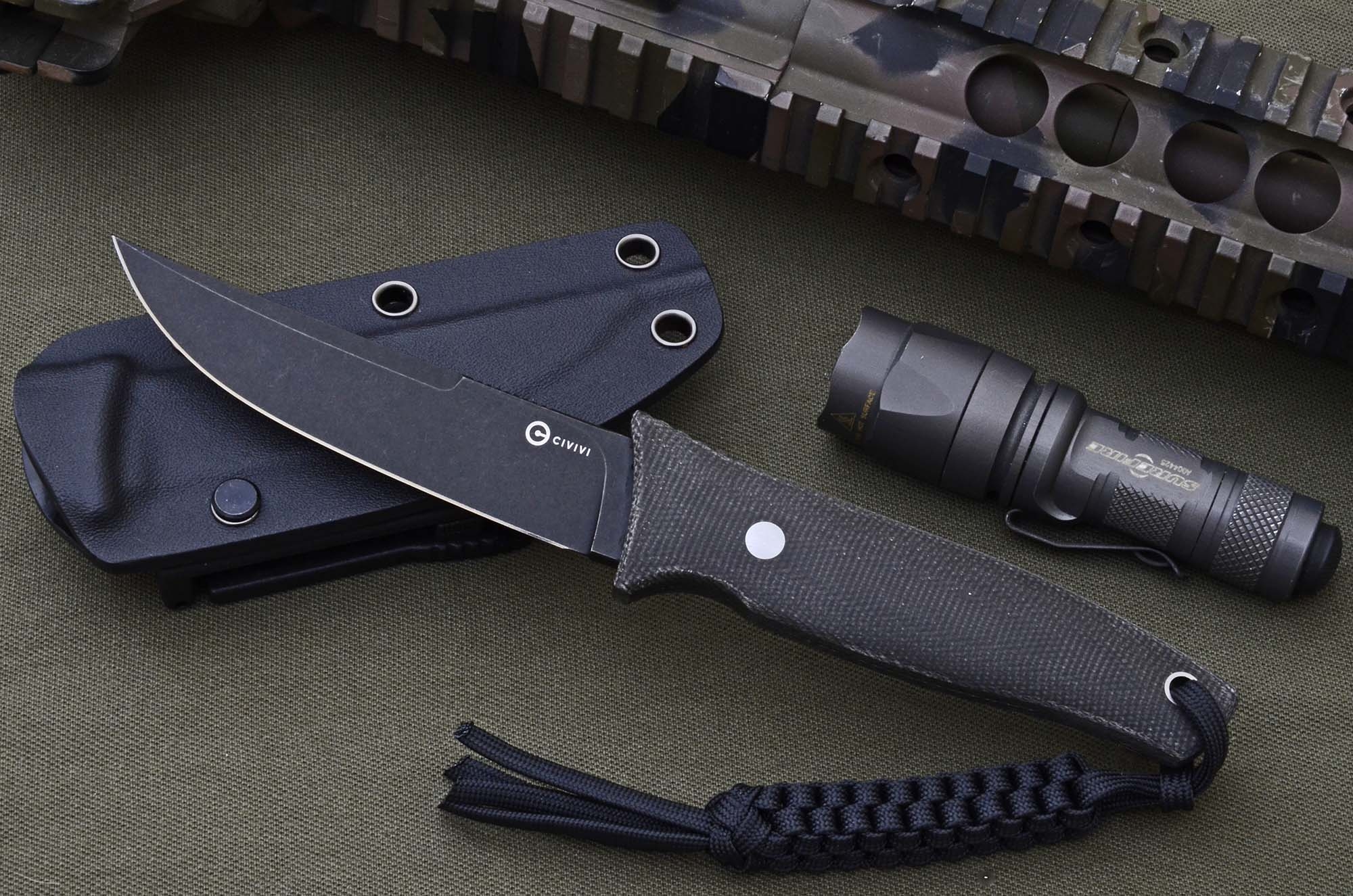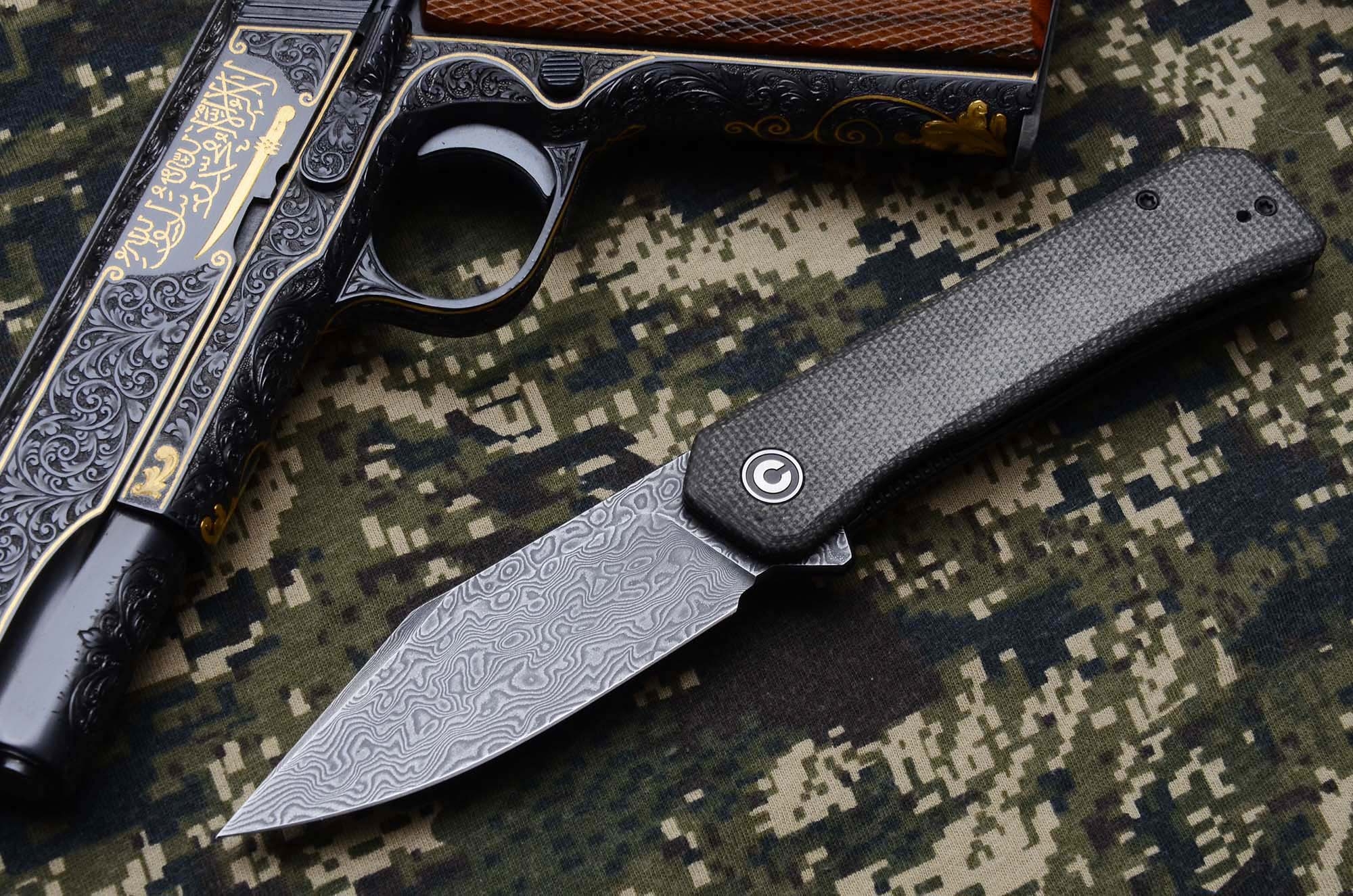Civivi is a Chinese brand that we presented to you several times already and will present to you again in the future, since it seems to be able to churn out interesting, well-built and, above all, honestly priced products on a continuous cycle. Like many knife companies, it has a constantly updated catalog, and this time we decided to present you with two different models within the same article. The knives are called Qubit and Altus respectively, and they belong to the EDC category, that is, they are tools intended for the small tasks of everyday life. Thus, these are not survival tools or for "tactical" uses, but easy knives with which you can open a package, cut a string, or slice a sausage. The two knives share the button lock system which now characterizes many Civivi models and seems to be much appreciated by enthusiasts.
Civivi Qubit, essential and a bit snobby
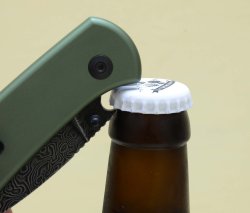
The Civivi Qubit is an in-house designed folding knife that derives from the Elementum model we already presented to you about three years ago. The first thing one notices when looking at the knife while still closed is the surface of the aluminum handle, which is totally smooth. At a time when companies are challenging each other with 3D textures and all kinds of checkering, this model definitely goes against the grain, offering the user's fingers a pair of silky-smooth scales, very pleasant to the touch. The model we introduce here is the one with a blued Damascus blade, and very nice green colored scales.
The versions with 14C28N steel blade, on the other hand, are available with black, orange, light blue and pink colored handles. The handle structure is open, thus lacking a back, and facilitates the removal of any dirt that may accumulate there. It also allows you to observe the simple but functional push-button locking system, which allows the knife to be opened with a simple flick of the wrist and closed just as easily. For those who prefer the more traditional way of opening the blade, a thumb stud on either side of the blade heel assists the operation. On the right side of the handle we find a very simple clip, made of stainless steel with a semi-opaque black surface treatment. The clip allows the knife to be carried "tip up" and can be disassembled or swapped to the opposite side by loosening two Torx screws. A milling is provided on the other side of the handle to accommodate the clip. As usual, the blade pivot head is decorated with the letter C from Civivi, a nice little touch that doesn't hurt.
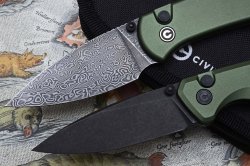
The Qubit blade has a drop point profile and on the model photographed is made of Damascus steel. Whem closed, the blade features an unusual bottle opener built into the tang, according to the company. In fact the idea is good and it works, so let's take it as a "plus". Otherwise the blade is machined in the Civivi tradition – that is very well, with a flat grind that makes it very clean in lines and pleasing in appearance. The factory sharpening is very good (something no longer taken for granted) and the two opening studs almost disappear from view thanks to their small size.
The blade length is 75.7 mm with a thickness of 2.3 mm, so don't expect to be able to do power work – that would be inconsistent with this knife. As usual for Civivi products, the blade rotates on a ceramic ball bearing assembly that provides a very smooth opening. The weight of the Civivi Qubit is 80 grams including the clip, with a handle thickness of 11.3 millimeters, making it pleasant to carry continuously. Now let's talk about price: the steel blade version costs about 75 euros while the Damascus blade version costs about 85 euros. This is certainly an affordable price, especially for the latter, which we recommend at this point. The blued Damascus blade is really beautiful, and for about ten euros more it would be a shame to give up its elegant touch.
Civivi Altus: essential with panache
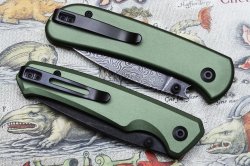
Let us now turn to the Altus model, again in the version with aluminum grips. Taking it in hand immediately after the Qubit, the feeling is that it is noticeably heavier and thicker. Indeed it is, and we shall see this a little later. Let's say right away that the Altus shares the button lock and ambidextrous opening studs that allows you to choose which way to deploy the blade. The latter measures 75.5 mm in length, is made of Nitro V5 steel, hardened to 59-61 HRC, and features a flat grind. But back to the handle for a moment: again, it is anodized aluminum with no checkering of any kind, but compared to the Qubit it is more three-dimensional, with a relief cut that leaves plenty of room for the fingers to reach the opening stud, and tapered edges along the whole handle. The ever-present upward-pointing clip is on the right side and can be easily moved to the other one, where this time we find only two holes, with no milling. However, the Civivi Altus is available with different handle variants: in addition to smooth aluminum (blue or green) it can be G10 or Micarta with a finely checkered surface, or Bubinga wood. The handle thickness, clip excluded, is 13 millimeters, for a handle length of 105.3 millimeters. The weight is 96 grams, 16 more than the previous model.
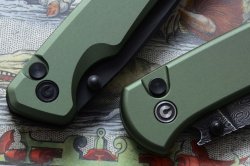
The Nitro V5 steel blade is definitely well made and offers the user excellent standard sharpening. The finish referred to as "black stonewashed" is actually more like phosphating, with a completely black, matte surface. Technically, the Altus shares the double-opening system, and the same considerations about its operation as the previous model apply, with the added value given by the handle relief cut that makes it perhaps a bit easier to reach the old reliable studs. Speaking of prices, the Altus in the version we presented costs about 80 euros, and taking advantage of recurring promotions from the manufacturer and other online sites it is not difficult to find it for about ten euros less. Again, the difference with the previous model is minimal. There is also a version of the Altus featuring a Damascus blade, which costs about 100 euros, so the choice of handle materials and blade finishes is interesting.
Which one is the best? It depends on taste: certainly the Qubit has more classic lines, and especially in the Damascus blade version it has a more aristocratic character. The Altus, on the other hand, is a bit more suitable for indoor/outdoor use thanks to the blade finish being more resistant to the elements. But as always it is all a matter of personal taste.
To learn more please visit the Civivi website.
Civivi Qubit and Altus specs and prices
| Manufacturer: | Civivi |
| Models: | Qubit – Altus |
| Type: | EDC folders |
| Designer: | Civivi |
| Blade: | Damascus, hardness 58-60HRC – Nitro V5 |
| Locking Mechanism: | Button lock – Button lock |
| Blade Length: | 75.7 mm – 75.5 mm |
| Overall Length: | 183 mm – 181 mm |
| Grind: | Flat |
| Finish: | Blued – Black stonewashed |
| Handle: | Aluminum - Aluminum |
| Weight: | 80 grams – 95 grams |
| Price: | 85 to 80 euro approx. |



